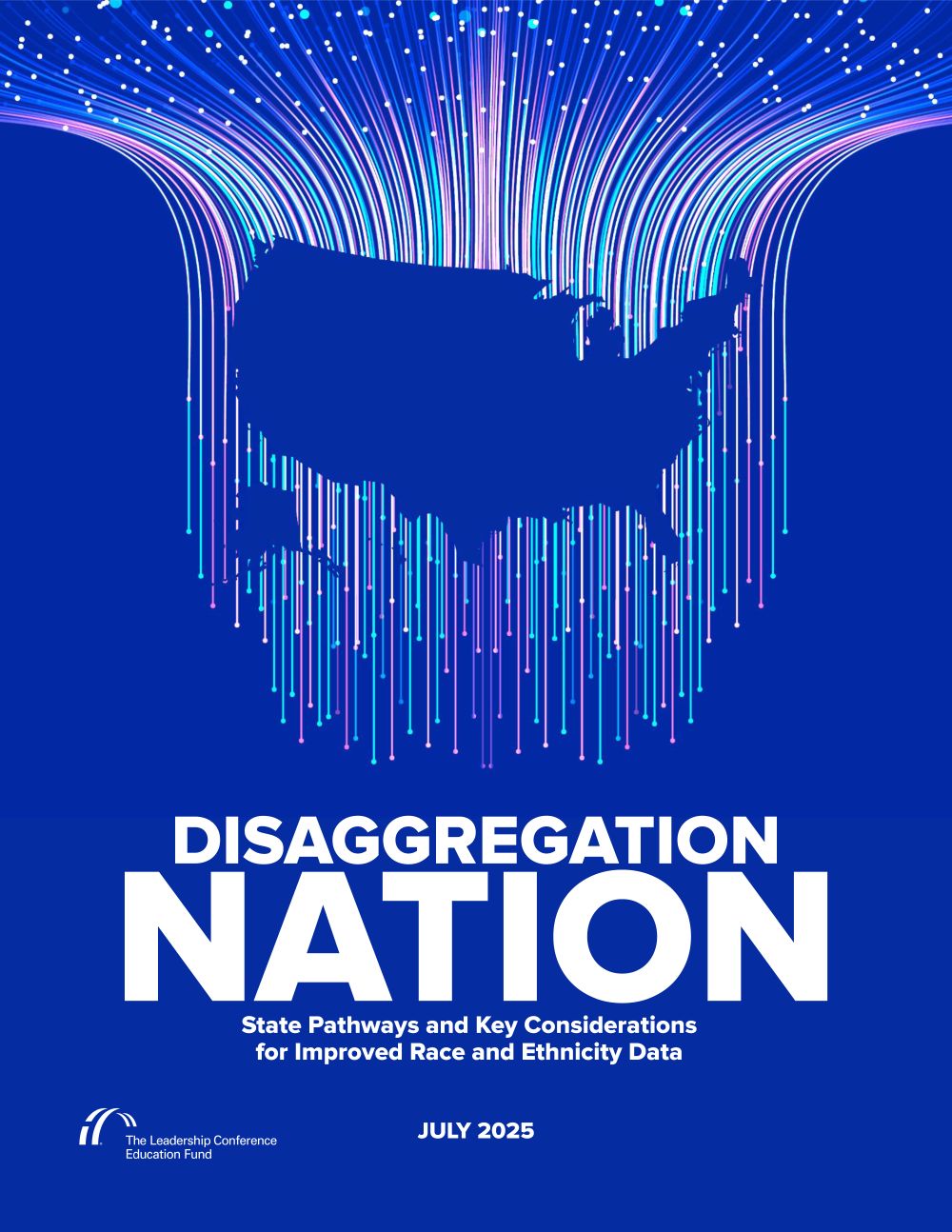Laws
California Requires the Collection of Disaggregated Data for AA and NH/PI Communities and Latino and Indigenous Communities (Department Of Public Health) And Black or African American Communities (Select Agencies)
A 2025 law (Assembly Bill 91) requires state and local agencies that collect demographic data on the ancestry or ethnic origin of California residents to include separate collection categories and tabulations for Middle Eastern and North African (MENA) populations, who have historically been aggregated within the “White” category.
The law requires agencies, when collecting race or ethnicity data, to provide respondents the option of selecting one or more MENA categories, including, but not limited to, the following ancestry groups:
- Iranian
- Iraqi
- Lebanese
- Syrian
- Egyptian
- Palestinian
- Moroccan
- Yemeni
- Armenian
- Afghan
The law also requires agencies to include a write-in option to allow individuals to self-identify additional Middle Eastern or North African ancestries not explicitly listed.
The requirements apply when a state or local agency collects demographic data for statistical reporting, policy development, or program administration, consistent with existing state demographic data collection laws.
Implementation timeline:
- Agencies must begin collecting MENA data using separate categories by January 1, 2028.
- Agencies must begin publishing aggregated data using the new MENA categories by January 1, 2029.
The Latino and Indigenous Disparities Reduction Act, passed in 2024, requires the state Department of Public Health (DPH) to provide respondents the option of selecting one or more ethnic or racial designations or languages on forms for all of the following:
- Each major Latino group, including, but not limited to, Mexican, Guatemalan, Salvadoran, Honduran, Nicaraguan, Puerto Rican, Dominican, Cuban, Colombian, and Peruvian, followed by a blank space to fill in additional groups.
- Each major Mesoamerican Indigenous nation, including, but not limited to, Maya, Aztec, Mixteco, Zapoteco, and Triqui, followed by a blank space to fill in additional nations.
- The preferred language of program participants, including Mixteco, Triqui, Zapoteco, K’iche, Mam, and Kanjobal, followed by a blank space to fill in additional languages. SB 1016
The law applies when the DPH is collecting demographic data on the ancestry or ethnic origin of California residents for a report that includes rates for major diseases. DPH must comply with the law by July 1, 2028.
A 2012 state law requires collection of Asian and Pacific Islander demographic data in categories broader than the OMB requirements. The law states that a state agency, board, or commission that collects demographic data on ancestry or ethnic origin shall use separate collection categories and tabulations for:
- Each major Asian group, including, but not limited to, Chinese, Japanese, Filipino, Korean, Vietnamese, Asian Indian, Laotian, and Cambodian.
- Each major Pacific Islander group, including, but not limited to, Hawaiian, Guamanian, and Samoan. CA Government Code 8310.5
A 2022 law expands the requirements for Asian and Pacific Islander categories. The law requires that the state Department of Public Health, whenever collecting demographic data on the ancestry or ethnic origin of persons for a report that includes rates for major diseases, leading causes of death, pregnancy rates, or housing numbers, shall collect and tabulate data for:
- Additional major Asian groups, including, but not limited to, Bangladeshi, Hmong, Indonesian, Malaysian, Pakistani, Sri Lankan, Taiwanese, and Thai.
- Additional major Native Hawaiian and other Pacific Islander groups, including, but not limited to, Fijian and Tongan.
The same requirements apply to the Departments of Industrial Relations and Civil Rights when collecting demographic data on the ancestry or ethnic origin of California residents. California Government Code § 8310.7; see a summary of the law on the CDPH website.
A complementary law, adopted in 2015, requires all state forms to give the option to select one or more ethnic or racial designations. California Government Code § 8310.9
A 2024 law makes California the first state to collect data on Black populations by ancestry/lineage. Government Code § 8310.6 (AB 189). The law requires the state Controller’s Office and Department of Human Resources, when collecting demographic information from applicants, to add categories for:
- “African Americans who are descendants of persons who were enslaved in the United States”;
- “Blacks who are not descendants of persons who were enslaved in the United States, including, but not limited to, African Blacks, Caribbean Blacks, and other Blacks”; and
- “Unknown or choose not to identify”.
The law provides the following definitions:
- “African Americans who are descendants of persons who were enslaved in the United States” means individuals who self-identify as Black, African American, or American Freedman who have at least one ancestor who was enslaved in the United States.
- “African Blacks” means individuals who self-identify as Black and who either immigrated directly from Africa to the United States or who are descendants of such a person and who have no ancestors who were enslaved in the United States.
- “American Freedmen” means persons who gained freedom from slavery in the United States or their descendants.
- “Caribbean Blacks” means individuals who self-identify as Black and who either left Africa for a Caribbean country before immigrating to the United States or who are descendants of such a person and who have no ancestors who were enslaved in the United States.
- “Other Blacks” means individuals who self-identify as Black and who either left Africa to a country not in the Caribbean before immigrating to the United States or who are descendants of such a person and who have no ancestors who were enslaved in the United States.
A new law, effective January 1, 2025, expands data collection requirements for the Department of Corrections and Rehabilitation, which previously published Asian, Pacific Islanders, and Indigenous people as “other.” The law requires the Department to prepare and publish data disaggregated by race and ethnicity when collecting voluntary self-identification information pertaining to the race or ethnic origin of people admitted, in custody, and released and paroled. Minimum categories include:
- American Indian/Alaskan Native
- Bangladeshi
- Black
- Cambodian
- Chinese
- Colombian
- Cuban
- Fijian
- Filipino
- Guamanian or Chamorro
- Guatemalan
- Native Hawaiian
- Other Hispanic Not Listed
- Hmong
- Indian
- Indonesian
- Jamaican
- Japanese
- Korean
- Laotian
- Malaysian
- Mexican
- Nicaraguan
- Other
- Other Asian Not Listed
- Other Pacific Islander Not Listed
- Pakistani
- Puerto Rican
- Salvadorian
- Samoan
- Sri Lankan
- Taiwanese
- Thai
- Tongan
- Unknown
- Vietnamese
- White
Bills
California has introduced several bills related to data disaggregation by race and ethnicity.
Assembly Bill 1186
Another bill being considered in 2025 would require a specified number of detailed categories in each of the minimum race and ethnicity categories collected by state agencies and provide a write-in option to allow for additional self-identification. (Bill status)

